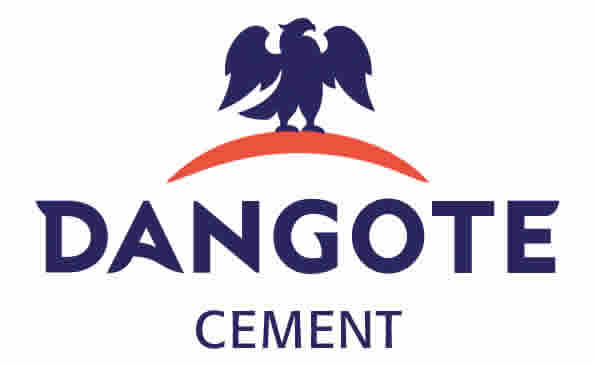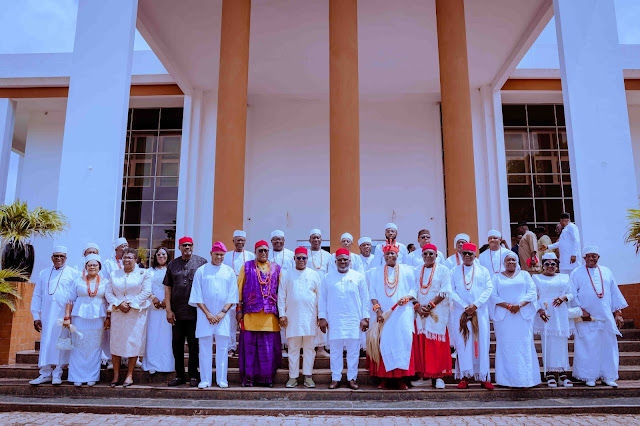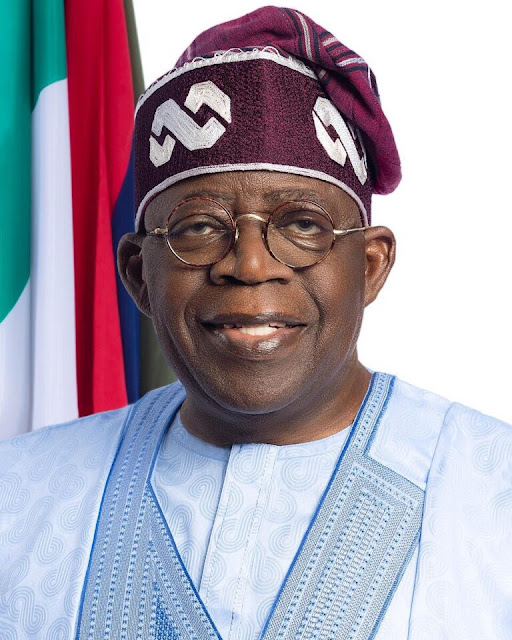In a remarkable display of financial resilience, Dangote Cement Plc, Nigeria’s largest cement manufacturer and a flagship subsidiary of the Dangote Group, has reported a staggering 174% surge in profit after tax for the first half of 2025. This achievement comes at a time when the company faces significant liquidity constraints and a backdrop of investor pessimism, driven by macroeconomic uncertainties and operational challenges in Nigeria’s industrial sector. The company’s ability to deliver such robust financial performance underscores its operational efficiency, strategic adaptability, and dominant position in the cement industry, even as it navigates a complex economic landscape.
Financial Performance: A Breakdown of the Numbers
For the six-month period ending June 30, 2025, Dangote Cement recorded a profit after tax of N405.5 billion, a 174% increase from the N148.0 billion reported in the corresponding period of 2024. This exponential growth in profitability reflects the company’s ability to capitalize on strong demand for cement, driven by ongoing infrastructure projects across Nigeria and other African markets where it operates. Revenue for the period rose by 85.1% to N1.85 trillion, up from N1.0 trillion in H1 2024, fueled by higher sales volumes and improved pricing strategies.
The company’s earnings before interest, taxes, depreciation, and amortization (EBITDA) also saw a significant uptick, climbing to N837.1 billion, a 95.4% increase from N428.2 billion in the prior year. This robust EBITDA growth highlights Dangote Cement’s ability to maintain strong margins despite rising input costs and inflationary pressures. The company’s operational efficiency was further evidenced by a 10.7% increase in group sales volume, reaching 14.2 million metric tons compared to 12.8 million metric tons in H1 2024.
In Nigeria, Dangote Cement’s home market, sales volumes grew by 8.1% to 9.1 million metric tons, reflecting sustained demand for cement in construction and infrastructure projects. The company’s pan-African operations also performed strongly, with a 15.4% increase in sales volume to 5.1 million metric tons, driven by robust demand in key markets such as Cameroon, Senegal, and Zambia.
Strategic Initiatives Driving Profitability
Dangote Cement’s stellar financial performance in H1 2025 can be attributed to a combination of strategic initiatives and operational excellence. The company has continued to invest in expanding its production capacity and optimizing its supply chain to meet growing demand. Its integrated business model, which encompasses cement production, distribution, and logistics, has enabled it to maintain cost efficiencies and capture a larger share of the market.
One key factor contributing to the profit surge was the company’s ability to implement price adjustments in response to inflationary pressures and currency depreciation. The naira’s volatility has been a persistent challenge for Nigerian manufacturers, as it increases the cost of imported raw materials and equipment. However, Dangote Cement’s strong pricing power, underpinned by its dominant market position, allowed it to pass on some of these costs to consumers without significantly impacting demand.
Additionally, the company’s focus on alternative fuels has played a critical role in reducing production costs. By increasing the use of locally sourced materials and alternative energy sources, such as coal and biomass, Dangote Cement has mitigated the impact of rising energy costs, which have been a major concern for manufacturers in Nigeria. The company’s sustainability initiatives, including investments in energy-efficient technologies and waste recycling, have also contributed to cost savings and enhanced its reputation as an environmentally responsible corporation.
Dangote Cement’s export strategy has been another driver of growth. The company has ramped up exports to neighboring countries, leveraging its excess production capacity in Nigeria to serve markets in West and Central Africa. This has not only boosted revenue but also diversified the company’s income streams, reducing its reliance on the Nigerian market.
Liquidity Challenges and Financial Strain
Despite its impressive financial performance, Dangote Cement is not immune to the broader economic challenges facing Nigeria. The company reported significant liquidity strains in H1 2025, primarily due to foreign exchange losses and high borrowing costs. Nigeria’s foreign exchange market has been characterized by volatility, with the naira depreciating significantly against major currencies. This has increased the cost of servicing foreign-denominated loans and importing critical inputs, putting pressure on the company’s cash flow.
Dangote Cement’s total liabilities rose to N1.7 trillion in H1 2025, up from N1.3 trillion in the same period of 2024, reflecting higher borrowing to finance its expansion projects and working capital needs. The company’s debt-to-equity ratio, while still within manageable levels, has raised concerns among some analysts about its long-term financial sustainability, particularly in an environment of rising interest rates.
Foreign exchange losses amounted to N112.4 billion in H1 2025, a significant increase from N73.2 billion in H1 2024. These losses were largely due to the revaluation of foreign currency-denominated loans and trade payables. The Central Bank of Nigeria’s efforts to stabilize the naira through monetary policy tightening have had limited success, and manufacturers like Dangote Cement continue to bear the brunt of currency fluctuations.
To address these liquidity challenges, Dangote Cement has implemented several measures to improve its cash flow. These include optimizing its working capital management, renegotiating loan terms with creditors, and exploring local financing options to reduce exposure to foreign exchange risks. The company has also prioritized repatriating earnings from its pan-African operations to bolster its foreign currency reserves.
Investor Pessimism and Market Sentiment
Despite the company’s strong financial performance, investor sentiment toward Dangote Cement remains cautious. The company’s stock price has experienced volatility on the Nigerian Exchange (NGX), reflecting broader concerns about Nigeria’s macroeconomic environment. High inflation, which reached 34.2% in June 2025, coupled with elevated interest rates and foreign exchange scarcity, has dampened investor confidence in Nigerian equities, including blue-chip stocks like Dangote Cement.
Analysts attribute this pessimism to several factors. First, the persistent foreign exchange challenges have raised concerns about the company’s ability to sustain its profit margins in the long term. While Dangote Cement has demonstrated resilience, the unpredictability of Nigeria’s forex market remains a significant risk. Second, the company’s high debt levels have sparked worries about its ability to manage interest payments, particularly if global interest rates continue to rise.
Furthermore, Nigeria’s infrastructure deficit, while driving demand for cement, also poses logistical challenges for manufacturers. Poor road networks, unreliable power supply, and inefficiencies at the country’s ports have increased operating costs and disrupted supply chains. These challenges have led some investors to question whether Dangote Cement can maintain its growth trajectory without significant improvements in Nigeria’s business environment.
However, not all analysts share this pessimistic outlook. Some argue that Dangote Cement’s dominant market position, extensive distribution network, and diversified operations provide a strong buffer against economic headwinds. The company’s ability to deliver a 174% profit surge in the face of these challenges is seen as a testament to its resilience and strategic foresight.
Leadership and Corporate Governance
The leadership of Dangote Cement, under the stewardship of Aliko Dangote, Africa’s richest man and the company’s founder, has been instrumental in navigating the company through turbulent times. The management team, led by Group Managing Director Arvind Pathak, has focused on operational efficiency, cost management, and market expansion to drive growth. Their ability to balance short-term financial pressures with long-term strategic goals has been a key factor in the company’s success.
Dangote Cement’s commitment to corporate governance has also bolstered its reputation among stakeholders. The company has consistently adhered to regulatory requirements and maintained transparency in its financial reporting. Its board of directors, comprising experienced industry leaders and independent members, provides strategic oversight and ensures accountability.
The company’s focus on sustainability and corporate social responsibility (CSR) has further enhanced its brand image. Dangote Cement has invested in community development projects, including education, healthcare, and infrastructure, in the regions where it operates. These initiatives have strengthened its social license to operate and fostered goodwill among local communities.
Industry Context: The Cement Sector in Nigeria
To fully appreciate Dangote Cement’s performance, it is essential to understand the broader context of Nigeria’s cement industry. The sector has undergone significant transformation over the past two decades, evolving from a heavily import-dependent market to one driven by local production. Dangote Cement has been at the forefront of this transformation, leveraging its scale and investments to dominate the market.
Nigeria’s cement industry is characterized by high demand, driven by rapid urbanization, population growth, and government-led infrastructure projects. The federal government’s focus on initiatives such as the National Integrated Infrastructure Master Plan and the African Continental Free Trade Area (AfCFTA) has created opportunities for cement manufacturers to meet the needs of both domestic and regional markets.
However, the industry faces several challenges, including high production costs, unreliable power supply, and regulatory uncertainties. The cost of energy, which accounts for a significant portion of cement production costs, remains a major concern. Nigeria’s epileptic power supply has forced manufacturers to rely on expensive diesel generators, further eroding profit margins.
Dangote Cement’s ability to thrive in this challenging environment is a testament to its operational efficiency and strategic investments. The company’s integrated plants in Obajana, Gboko, and Ibese have enabled it to achieve economies of scale, while its extensive distribution network ensures timely delivery to customers across Nigeria and beyond.
Pan-African Expansion: A Key Growth Driver
Dangote Cement’s pan-African operations have been a major contributor to its growth in H1 2025. The company operates in 10 African countries, including Cameroon, Congo, Ghana, Ethiopia, Senegal, Sierra Leone, South Africa, Tanzania, Zambia, and Zimbabwe. These operations have provided a hedge against Nigeria’s economic challenges, enabling the company to diversify its revenue streams and reduce its exposure to naira volatility.
In H1 2025, the company’s pan-African subsidiaries reported a 15.4% increase in sales volume, driven by strong demand in key markets. For example, in Cameroon, Dangote Cement’s 1.5 million metric ton plant has captured a significant share of the market, benefiting from the country’s infrastructure development projects. Similarly, in Senegal, the company’s 1.5 million metric ton facility has seen robust demand, supported by government investments in housing and transportation.
The company’s pan-African strategy aligns with the broader objectives of the AfCFTA, which aims to boost intra-African trade. By establishing production facilities across the continent, Dangote Cement is well-positioned to capitalize on the growing demand for construction materials in Africa’s rapidly urbanizing economies.
Challenges and Risks
While Dangote Cement’s performance in H1 2025 is commendable, the company faces several risks that could impact its future growth. The most immediate challenge is Nigeria’s macroeconomic instability, particularly the persistent foreign exchange crisis. The naira’s depreciation has increased the cost of imported inputs and debt servicing, putting pressure on the company’s cash flow.
Inflation remains another significant concern. With Nigeria’s inflation rate hovering above 34%, consumer purchasing power has been eroded, potentially affecting demand for construction materials in the residential sector. While infrastructure projects have sustained demand, any slowdown in government spending could impact the company’s sales volumes.
Regulatory risks also loom large. The Nigerian government’s policies, such as import restrictions and tax incentives, have historically supported local cement production. However, changes in policy or delays in implementing infrastructure projects could create uncertainty for the industry.
On the operational front, logistical challenges continue to hamper efficiency. Poor road networks and port congestion have increased transportation costs and delayed deliveries, particularly in Nigeria. While Dangote Cement has invested in its own fleet of trucks and logistics infrastructure, these challenges require broader systemic improvements to fully resolve.
Outlook for H2 2025 and Beyond
Looking ahead, Dangote Cement is well-positioned to sustain its growth trajectory, provided it continues to navigate the economic and operational challenges effectively. The company’s ongoing investments in capacity expansion, including the planned commissioning of new production lines, will further strengthen its market position. Additionally, its focus on sustainability and alternative fuels is expected to yield long-term cost savings and enhance its competitiveness.
Analysts are cautiously optimistic about the company’s prospects for the second half of 2025. While foreign exchange constraints and high borrowing costs remain concerns, Dangote Cement’s strong fundamentals, diversified operations, and strategic initiatives provide a solid foundation for growth. The company’s ability to maintain strong pricing power and capture market share in both Nigeria and other African markets will be critical to its success.
The broader economic environment will also play a significant role in shaping Dangote Cement’s performance. Improvements in Nigeria’s foreign exchange market, coupled with sustained government investment in infrastructure, could create a more favorable operating environment. Conversely, any deterioration in macroeconomic conditions could pose challenges to the company’s profitability.
Conclusion
Dangote Cement’s 174% profit surge in H1 2025 is a remarkable achievement that underscores its resilience and strategic acumen in a challenging economic environment. The company’s ability to deliver strong financial results despite liquidity strains and investor pessimism reflects its operational efficiency, market dominance, and forward-thinking leadership. By leveraging its integrated business model, expanding its pan-African footprint, and investing in sustainability, Dangote Cement has positioned itself as a leader in Africa’s cement industry.
However, the road ahead is not without challenges. Foreign exchange volatility, high borrowing costs, and logistical bottlenecks will continue to test the company’s resilience. Nevertheless, with its strong fundamentals and strategic vision, Dangote Cement is well-equipped to overcome these hurdles and maintain its position as a powerhouse in the African cement market. As Nigeria and other African economies continue to urbanize and invest in infrastructure, Dangote Cement is poised to play a pivotal role in shaping the continent’s built environment.






